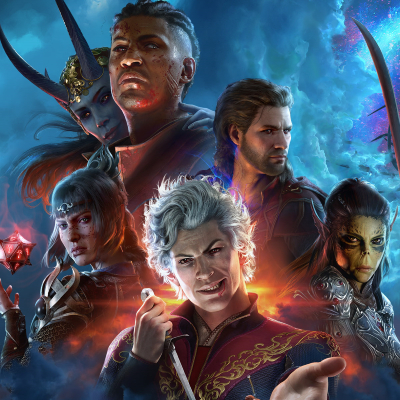As reported by TheGamer and Le Parisien, the former French voice of Lara Croft, Françoise Cadol, has reportedly issued a cease and desist to Aspyr over what seem to be AI-generated voice lines imitating her in the remasters of Tomb Raiders 4, 5, and 6.
Lara Croft’s Brazilian Portuguese actor for this portion of the series, Lene Bastos, has also spoken out about her performance being modified in this way, and other localizations may have also been affected according to TheGamer and French Tomb Raider fan account, Tomb Raider Files.
2/2 Ceci est une véritable insulte au travail de la comédienne Françoise Cadol qui milite contre l’utilisation de l’I.A dans le domaine de la création comme de nombreux comédiens notamment avec l’action TouchePasMaVF. Gameplay par TRGAMER.#doublageIA #TombRaiderRemastered pic.twitter.com/VjBBpLYk8qAugust 14, 2025
Aspyr seems to already be on the case fixing this, but the studio has not publicly commented on the matter. I have reached out to Aspyr for clarification, and will update this story when I hear back.
The changes appear to have been made as part of an August 18 patch to Aspyr’s remaster of The Last Revelation, Chronicles, and Angel of Darkness, a follow-up to its well-received remaster of the first three Tomb Raider games from 2024. Tomb Raider Files has a side-by-side comparison of some original lines and their replacements from the French dub, uploaded when the patch first released.
Speaking to Le Parisien, Cabol said she was not contacted by Aspyr about any changes to the recording, and that she did not re-record lines for the game. Cabol was alerted to the changes by French Tomb Raider fans. Lene Bastos first addressed the issue in a video on Instagram uploaded August 21.
“I was also upset with the new information that some of my lines in this game were restored using AI,” Bastos said (she provided her own English subtitles in the video). “I am not against AI in any way, but we urgently need regulation on this tool because it can affect and harm all kinds of work and jobs.”
In a follow-up video on September 4, Bastos said she received a message from Aspyr apologizing for the re-recording and claiming that the adjustments were made by an “external development partner,” with the offending lines set to be removed in the next few weeks.
Brazilian Tomb Raider fan account, Tomb Raider de A a Z, uploaded a screenshot of the message as shared by Bastos. Notably, the message explicitly states that the voice lines were AI-generated by this external partner.
Given the lower-quality, robotic-sounding AI-generated lines, it’s confusing why they would be added in the first place. At least some of the offending lines, as shared by Tomb Raider Files, come from the games’ tutorials, with different wording between the old and new recordings. It’s possible this was, in part, a quick and dirty way to update tutorial messages to account for different control schemes.
For an example of this issue being handled better, Nightdive studios hired actors to record new voice lines in the tutorial/prologue section of the System Shock 2 remaster in order to account for the game’s newly-added controller support.

2025 games: This year’s upcoming releases
Best PC games: Our all-time favorites
Free PC games: Freebie fest
Best FPS games: Finest gunplay
Best RPGs: Grand adventures
Best co-op games: Better together




It’s interesting to see how the voice acting industry is evolving with technology. Françoise Cadol’s concerns highlight important issues around authenticity and creative rights in gaming. It’ll be intriguing to see how this situation unfolds.
You’re right; the impact of technology on voice acting is significant. It’s fascinating that AI can now replicate voices, but it raises questions about the authenticity and emotional depth that human actors bring to their performances. Balancing innovation with artistic integrity will be crucial moving forward.
replace human voices, but it raises important questions about authenticity in gaming. It’s interesting to consider how fans might react to these changes, especially when they have strong attachments to original performances. Balancing innovation with respect for the original work is definitely a challenge for the industry.
It’s interesting to see how technology is changing the landscape of voice acting in video games. While AI voiceovers can offer efficiency, they might lack the emotional depth that human actors bring to their performances. This situation with Françoise Cadol highlights the need for a balance between innovation and preserving the essence of beloved characters.
I completely agree! It’s fascinating how AI is influencing not just voice acting but the entire gaming experience. It raises questions about authenticity and the emotional depth that human voices bring to characters like Lara Croft.
Absolutely, it’s a game-changer for the industry! It’s interesting to see how AI can enhance or disrupt traditional roles, especially in such iconic franchises. The debate around authenticity versus innovation in gaming is going to be crucial moving forward.
You’re right, it really is a pivotal moment! It’s fascinating to consider how AI could not only streamline the dubbing process but also potentially bring back classic characters in new ways. However, balancing that with the original voice actors’ contributions will be crucial for preserving the authenticity of the game.
Absolutely, it’s a significant turning point for voice acting in gaming! It’s interesting to see how AI might influence not just voiceovers, but also the way characters are developed and portrayed. This could lead to new creative possibilities, but it also raises important questions about authenticity and the value of human performances.
the industry is evolving with technology. This situation highlights the delicate balance between innovation and respecting the original performances. It’ll be fascinating to see how studios navigate this issue moving forward.